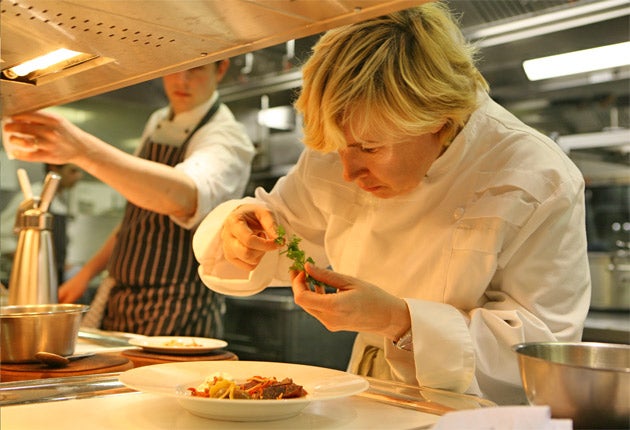'Eat and run' – the fine-dining crimewave

It is a crime many diners have contemplated, but few would ever actually commit. But in these straitened times it seems that record numbers of people eating out are choosing to dash for the door rather than settle the bill.
Figures seen by The Independent show that last year there was a 33 per cent increase in "eat and run" incidents in London. The Metropolitan Police statistics show that 330 people were reported for skipping out on their bills last year, compared with 249 in 2009. The 2010 figure is the first time the number has broken the 300 mark, with the previous five years' statistics showing a relatively stable total of around 250.
Because the crime is low on police forces' list of priorities, those who do "dine and dash" are rarely caught. In 2006, 39 people were arrested, while in 2009 only 10 people were caught.
The practice came to public prominence in November when Janis Nords, a Latvian film-maker living in north London, admitted nine offences of making off without payment from some of London's most exclusive restaurants. His crime spree – which amounted to £5,880 in unpaid bills – resulted in him being banned from entering central London at night, to keep him away from the most expensive restaurants. He was also ordered to settle his unpaid bills.
But it seems that Nords is not the only person to have fleeced expensive venues in a similar fashion. The Independent has learned that police officers were called to Amika, a west London nightspot frequented by the capital's rich and famous, in December after 29-year-old John William Cordle left without paying his £7,000 bar bill.
Cordle spent his money primarily on a jeroboam of Cristal champagne, which cost £5,500. He was arrested after trying to leave without paying and later pleaded guilty at West London magistrates' court.
Restaurateurs admitted they had increasingly fallen victim to bill-dodgers in recent months. Atul Kochhar, owner of the Michelin-starred Indian restaurant Benares, in Mayfair, said: "In 16 years of cooking in this country I had never had this happen to me. Now it has happened twice in the past six months.
"A few weeks ago we had a table of four who ran up a £400 bill on food and drink and then just slipped away without paying. And before that, about six months ago, a group of six young professional guys came in and specifically requested the chef's table. It has our most expensive menu at £150 per head. When the final course arrived they all seemed in a rush to leave and they all fled without paying. Luckily we managed to identify them on CCTV and they agreed to pay the bill.
"It is always very hard to identify the people that are going to do this – they look civilised and well-dressed. And we have to be careful not to view everyone with suspicion because people come here for a good service and a nice ambience. We want to make their meal memorable and enjoyable; we don't want to be patrolling their tables like MI5 agents."
The increase did not surprise Elizabeth Carter, who as editor of the Good Food Guide has visited most of the country's best restaurants. "It has always struck me as something that is very easy to do if you have got the nerve for it," she said. "I think there are an awful lot of 'tick-box' restaurants that people want to go to, but they are very expensive. Some people must simply decide that it is easy just to walk away.
Fred Sirieix, the general manager of Galvin at Windows, the restaurant in the Park Lane Hilton hotel, said that many restaurants only have themselves to blame. "I think it happens because of bad security standards," he said. "We have procedures in place and if a whole table suddenly wanted to go for a cigarette at the same time we would make sure at least one had left a card. But some restaurants can be a bit naive."
Bookmark popover
Removed from bookmarks